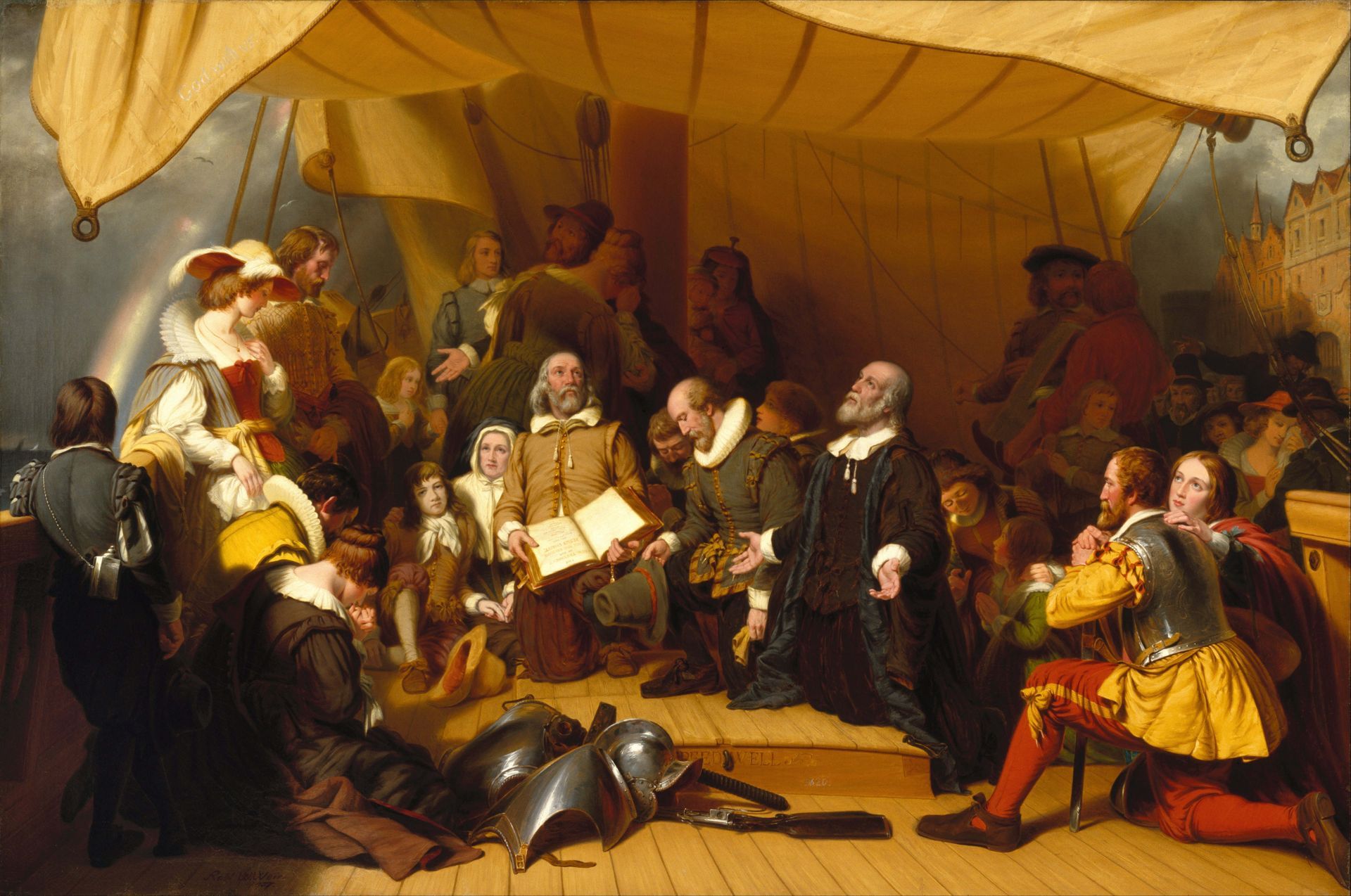Part 1: 400 Years of God-Given Liberty
At the same time Jamestown was beginning in 1607, Archbishop Tobias Matthew began raiding the homes of Scrooby in Nottinghamshire, England. They had the charge to imprison those who would not adhere to the Church of England.
Led by William Brewster, John Robinson, and Richard Clyfton, a group of Christian separatists were gathering together to worship the Lord according to their own understanding of Scripture and not the dictates of King James.
It was illegal to leave the country, yet the separatists attempted to do so in 1607, bound for Holland. Unfortunately, the captain of the ship betrayed them. The men were arrested, but treated leniently according to William Bradford.
They made another attempt the following year in 1608. This time they decided to split into multiple ships. Just as the ship containing the men got underway, news quickly reached everyone that the authorities were on their way. The captain got the ship moving as fast as he could to the horror of the passengers who were desperately concerned about their families still ashore. Not to mention, all the goods and supplies were with the women and children.
They implored the captain to turn around and return to their families. However, a fearful storm rose up against them. The ship was driven off course to the coast of Norway. For 14 days the storm raged. For many days they could see neither sun, moon, nor stars. The captain believed God was punishing him for not returning the men to their families.
Providentially, if the storm had not suddenly risen against them and kept them from returning, there may not have been an America as we know it today.
When the authorities arrived and found only the women and children, they felt awkward about arresting them, so they were allowed to go freely, making their way to Holland. If the storm had stopped the men and they returned, they would have been arrested and perhaps kept from ever leaving, including their eventual trip to the New World.
Instead, they made it to Amsterdam, from which they moved after a year to Leyden.
From there William Brewster, along with Thomas Brewer, Edward Winslow, and others, began working a printing press that sent many publications back to England, criticizing the King’s religion and calling everyone back to the teachings of the Bible. In response, King James sent out an international manhunt for these men.
The fear of arrest was compounded by the separatists’ concern of their children learning the Dutch customs and language and losing their English heritage after 12 years of residency.
The separatists thus decided on a new means to freedom. They acquired a land patent from the Virginia Company and financing from the Merchant Adventurers, who in return would seek a profit from the colony. This company would send along some of its own men, including Miles Standish (military leader) and Christopher Martin (governor of the colony).
They set sail on the Speedwell. The Speedwell was actually purchased by the cumulative efforts of the pilgrims. William Brewster had invited others from England to join their crusade. Those travelers hired a ship named the Mayflower. Before they set out across the Atlantic, the Speedwell developed leaks. The Puritans from Holland had no homes to which they could return as they had sold everything to make the trip. Therefore, those traveling from England returned home to wait for another time while everyone else boarded the Mayflower.
A total of 102 passengers with 30 or so crew departed Plymouth, England on September 6, 1620, headed for the Hudson River bay in what is today New York. It was cramped quarters and extremely intimidating, but they had already seen the Providential hand of the Lord at work in their lives, and they would soon see it again.

by Robert Walter Weir, 1857




